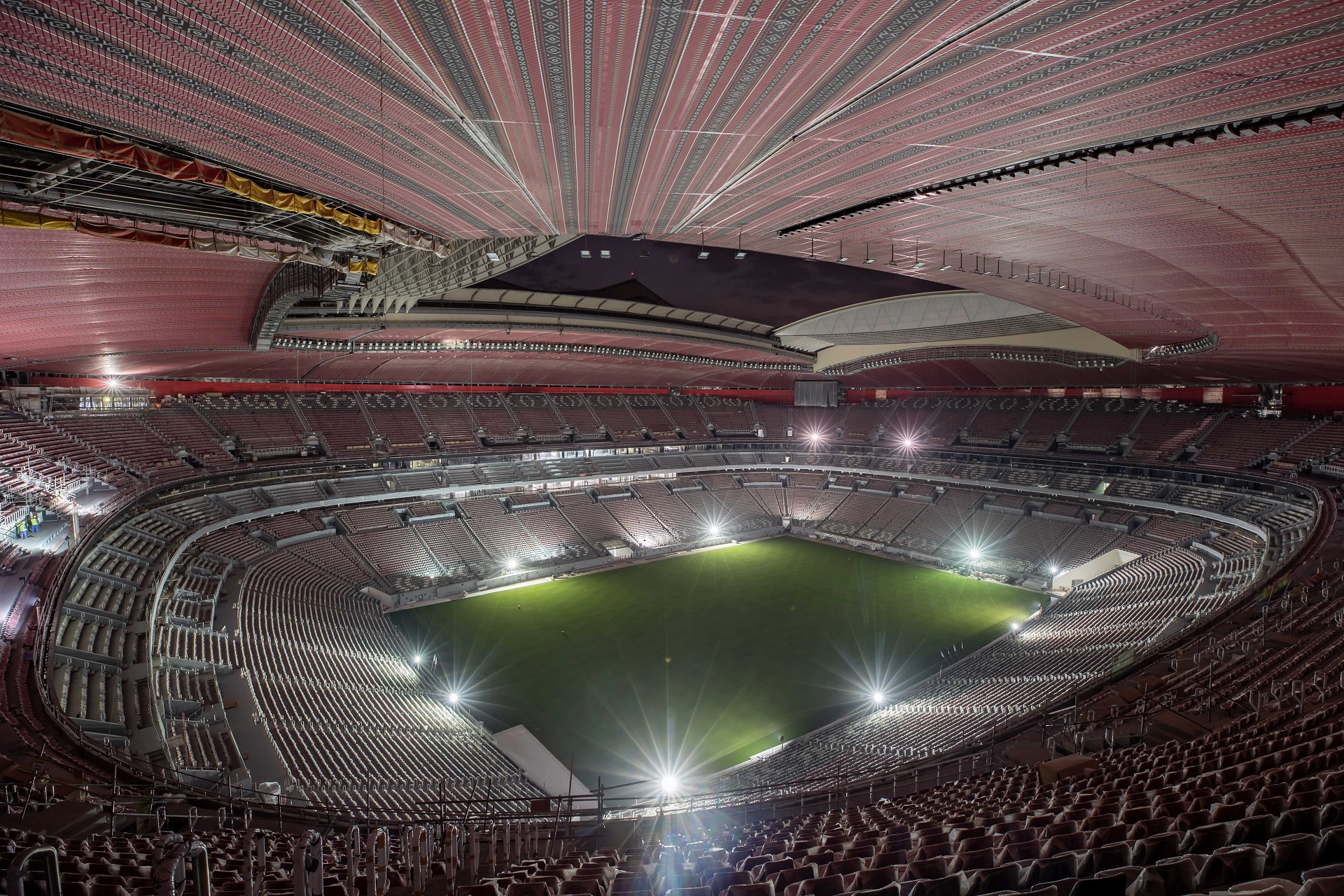Here are the Italian companies that score goals at the World Cup in Qatar

The Azzurri are not in Qatar for the 2022 World Cup, but several Italian companies (such as the Webuild group) have taken the field to carry out works and supply equipment. Facts, names and numbers
If the players of the national team are not in Qatar it cannot be said that our country is not in any case present at the World Cup and this is thanks to the numerous Italian companies which are among the protagonists of the organization and staging of the football event par excellence.
In addition to the well-known Weguid, there are in fact also other realities ranging from infrastructures to ceramics, passing through technology and sports equipment.
WEBUILD
The Italian multinational group, formerly Salini Impregilo (renamed Webuild in 2020), which operates in the construction and engineering sector, was involved not only in the construction of the 60,000-seat Al Bayt stadium where the inaugural match was held, but also of the Red Line North Underground metro line in Doha, which extends for 13 km in the Qatari capital.
THE STADIUM AT THE BAYT
The Al Bayt, built in Al Khor, about 40 km from Doha, covers over 200 thousand square meters , with parks and green areas designed to increase the livability of the city.
The stadium, inspired by the Bayt Al Sha'ar, the traditional Qatari tent symbol of hospitality typical of Arab culture, was built on behalf of the Aspire Zone government foundation, by the consortium called GSIC-JV – made up of Webuild, Galfar Al Misnad and Cimolai – in a contract, Il Sole24Ore recalls, worth over a million dollars.
Among the key aspects of the project, underlines Webuild, in addition to safety, there is the use of cutting-edge materials with low environmental impact, with 20% of the construction materials coming from recyclable sources. A feature which, together with the innovative retractable cover created by Cimolai, earned two prestigious GSAS certifications (“Design & Build” and “Construction Management”) in 2020 in terms of sustainability and reduction of environmental impact.
The stadium, being in an environment with high temperatures and strong temperature variations, is also characterized by the innovative solutions designed to guarantee ideal climatic conditions for both players and spectators. The light colored outer surface reduces heat absorption, promoting efficient use of cooling systems.
Finally, when the World Cup is over, the third ring will be dismantled and donated to developing nations in need of sporting infrastructure.
THE RED LINE NORTH UNDERGROUND
But, as anticipated, Webuild was also involved in the construction of the Red Line North Underground metro line, 13 km long and which extends through the financial district of Doha West Bay.
The project has established itself as a best practice in terms of environmental sustainability and safety, as demonstrated by the recognition of the Qatar Sustainability Award 2017 and, in 2018, of the RoSPA (Royal Society for the Prevention of Accidents) Silver Award.
CIMOLAI
Cimolai, a Pordenone-based company specializing in the design, construction and installation of metal structures, is also part of the GSIC-JV consortium and the construction of the Al Bayt. This temple of sport is for Cimolai only the latest example of large football sports facilities built so far.
In fact, in the past the company was the architect of the Olympic Stadium in Athens for the 2004 Olympics, the FNB Stadium in Johannesburg for the 2010 World Cup in South Africa and the National Stadium in Warsaw, Poland, for the 2012 European Championships.
THE RETRACTABLE COVER OF THE AL BAYT
At Al Bayt, Cimolai was responsible for building and assembling the upper steps and roof membranes, but above all the retractable roof, one of the largest in the world .
100 meters wide, 160 meters long and weighing 25,000 tons, it takes about 20 minutes to open and close in two halves towards the center of the field through sophisticated mechanisms, and can also be completely moved towards the north, to favor greater penetration of the sun and allow the lighting of the turf.
To build the entire structure, more than 30,000 tons of steel were needed, which was transformed into pipes, before setting sail for Qatar, from the factories in San Giorgio di Nogaro, Monfalcone, Polcenigo and Roveredo in Piano, all municipalities in Friuli Venice Julia. It took five years of work in Qatar and 450 people were involved in the project, including engineers, supervisors and specialized technicians.
Without ever forgetting the environmental impact, the huge canopy is able to reduce energy consumption and allows sunlight to favor the growth of the turf.
ATLAS AGREES
But it doesn't end here for Made in Italy companies. Atlas Concorde of Fiorano Modenese, specialized in ceramics, according to Sole24Ore , made its contribution to the World Cup by supplying tiles and other high quality products to finish both the Al Bayt and the Al Thumama and Al Rayyan stadiums, as well as the commercial boulevard of Lusail.
TECHNOGYM
Finally, last but not least, the aspect of the preparation of the athletes. Technogym, founded in Cesena in 1983 and a leading company in the production of sports equipment, already the official supplier of the last 8 Olympics, will train 28 teams of the 32 participants on the occasion of the World Cup in Qatar thanks to its innovative tools.
Alongside the Brazilian national team for over 10 years, in Qatar he will be present, among others, at the training camps in France, Germany, Holland, Spain, Argentina, England and the United States.
This is a machine translation from Italian language of a post published on Start Magazine at the URL https://www.startmag.it/economia/ecco-le-aziende-italiane-che-fanno-gol-ai-mondiali-del-qatar/ on Wed, 23 Nov 2022 10:25:57 +0000.
